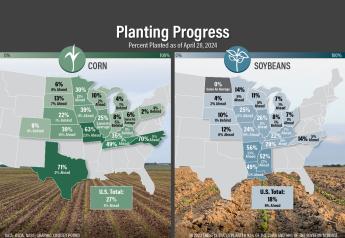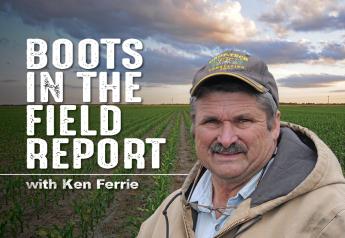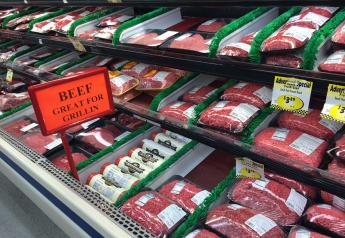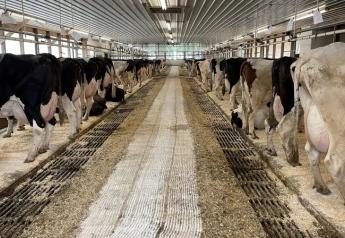Most Ag Economists Think It's Unlikely the 2023 Farm Bill Will Be Passed in 2023
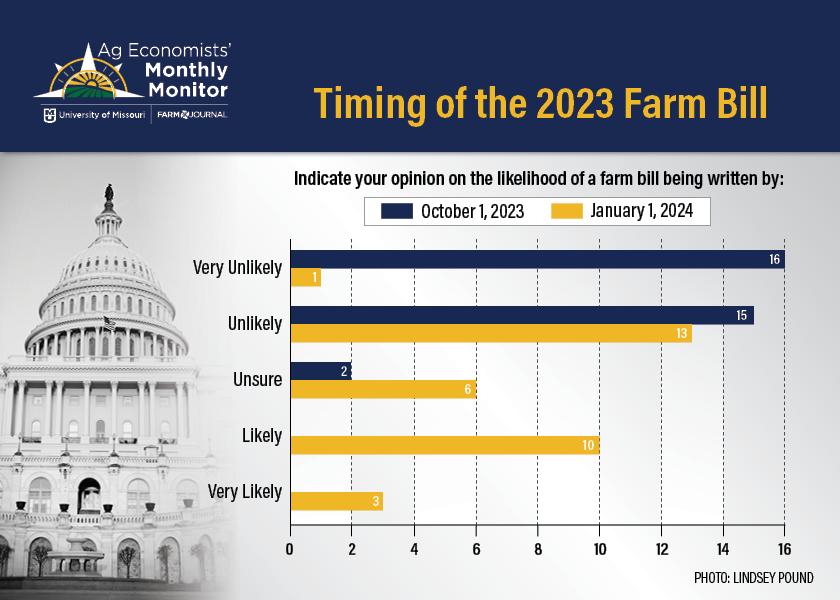
Time is running out to get a farm bill written before the current legislation expires at the end of September. According to the most recent Ag Economists’ Monthly Monitor, the majority of ag economists don’t expect a farm bill to be written by the upcoming deadline, but a few think it could happen by the end of the year.
According to the June Ag Economists’ Monthly Monitor, the majority of ag economists surveyed say it’s “very unlikely” or “unlikely” a farm bill will be written by the time the current legislation expires on Sept. 30, 2023. And while no one expects a farm bill to be written by the end of September, there are some who think it could still be finished by Jan. 1, 2024.
Both the House and Senate are actively holding Congressional hearings and listening sessions to draft a new five-year bill, but Congress could test the waters this week. Farm Journal Washington correspondent Jim Wiesemeyer says legislators have until Wednesday to propose amendments to the fiscal 2024 agriculture appropriations bill, which could lead to test votes on farm bill matters. Debate on the measure could begin next week.
Farm Bill Funding Debate
One of the areas of debate is how much funding will be available, but there are also questions about how climate goals and priorities outlined by the current administration could also shape the 2023 farm bill.
A recent think tank report written by University of Maryland professor Erik Lichtenberg indicates USDA could use its biggest land stewardship programs — the Conservation Reserve, the Environmental Quality Incentives Program (EQIP), and the Conservation Stewardship Program (CSP) — to combat climate change. The report says for the programs to be as effective as possible, Congress would have to reorient them, which is deemed a risky move that could cut into their support.
Congress has said no additional funding will be made available for the farm bill this year, so some members are getting creative to find dollars where they can. Senate Ag Chair Debbie Stabenow, D-Mich., recently mentioned the possibility of shifting almost $20 billion from her party’s climate and tax credit law enacted last year to more general spending in the upcoming farm bill. Her comments were made during a Bloomberg Government panel discussion last month.
Addressing High Production Costs
The 2023 farm fill debate is already much different than 2018 farm fill, which was enacted into law in December of 2018. The current bill, which was dubbed the Agriculture Improvement Act of 2018, was at a time when commodity prices were low and production costs weren’t as high.
The June Ag Economists’ Monthly Monitor found high production costs are the biggest headwind for farmers today. While most economists agree the next 12 months could produce more financial challenges for agriculture, views vary on how much financial pressure producers will see and offer differing opinions on the U.S. crop production picture and commodity/feed prices.
The Monthly Monitor is a new survey of nearly 50 agricultural economists from across the country. It's the first survey of its kind, collecting insights from economists who represent both the private and public sectors. The economists represent the ag sector across a wide geography and also have expertise in grains, livestock and policy.
The survey is conducted anonymously to allow the highly respected agricultural economists to speak more openly about their economic and production forecasts because their responses won't be attributed to the university, company or organization they represent. The Ag Economists' Monthly Monitor is a joint effort between the University of Missouri and Farm Journal. The university conducts the survey, collects and crunches the data while Farm Journal distributes the results.
Read more results from the June Ag Economists' Monthly Monitor. The next Monthly Monitor will be released later this week.


